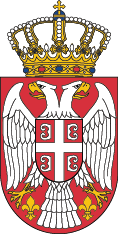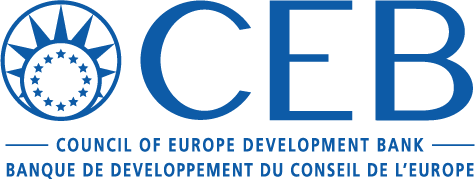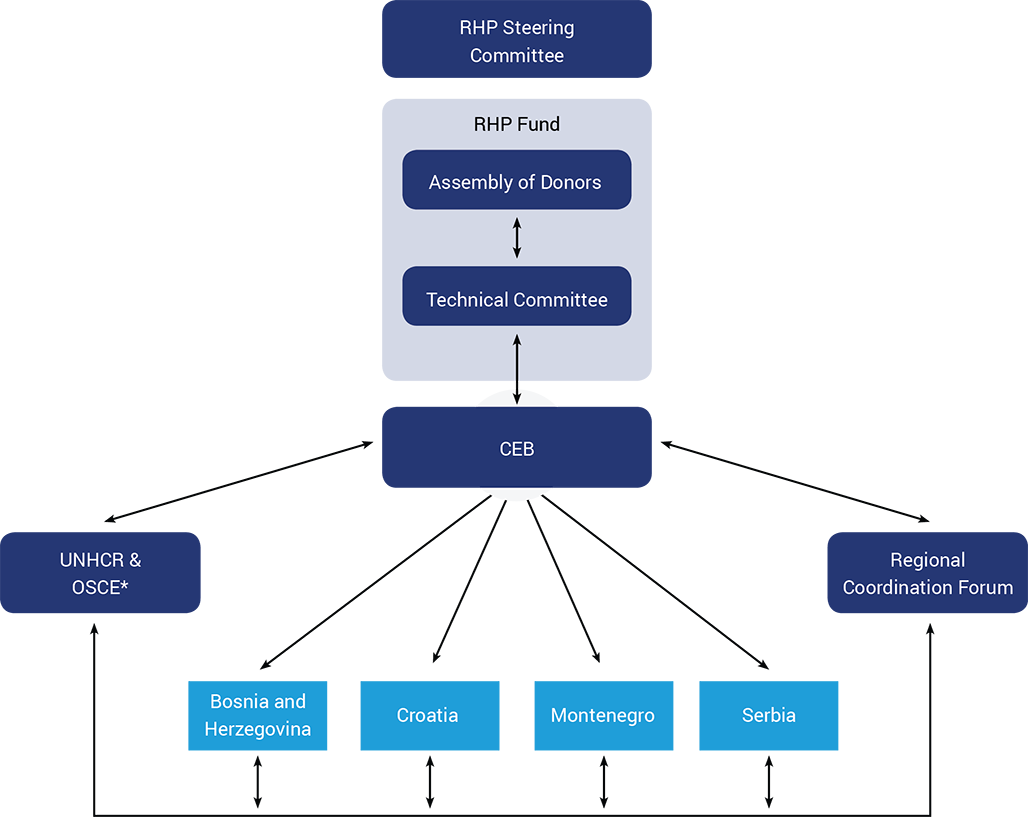The RHP consisted of four individual Country Housing Projects, one per Partner Country, which were implemented by the Partner Countries themselves through national structures that benefitted from a strong capacity building component thanks to the Technical Assistance financed by the European Commission and channeled through and managed by the CEB.
Contrary to most other housing projects in the Western Balkans, the objective of the RHP was not solely to provide housing - it also aimed to foster the institutional capacity of the Partner Countries to deliver sustainable housing solutions. Thanks to this enhanced capacity, the Partner Countries should be better placed to address the housing needs not just of RHP beneficiaries but also, with time, their populations at large. The RHP also, thanks to its strong regional character, contributed to improving neighbourly relations, thereby contributing to security and stability across the region.

INSTITUTIONAL STRUCTURE
Partner Countries Implementing Structures
The RHP was built upon an equal partnership with the four Partner Countries which were in charge of implementing the Programme. As such, it used the Partner Countries’ national structures and systems, which benefitted from a strong capacity development component.
Each Partner Country appointed a Lead Institution which was in charge of the overall programming of the Country Housing Project (CHP), including coordination with the local authorities and other stakeholders as well as the selection of beneficiaries who were provided with durable housing solutions. In addition, each Partner Country established a Project Implementation Unit (PIU) which was in charge of, among other things, contract management and procurement to ensure efficient CHP implementation.
 Bosnia and Herzegovina
Bosnia and Herzegovina
Ministry for Human Rights
and Refugees
www.mhrr.gov.ba
Federal Ministry of Displaced Persons and Refugees
www.fmroi.gov.ba
Republic Secretariat of Displaced Persons and Migration
www.vladars.net
The Department of Brcko District Government for Displaced Persons, Refugees and Housing Issues
www.bdcentral.net
 Republic of Croatia
Republic of Croatia
Ministry of Spatial Planning, Construction and State Assets
www.mpgi.gov.hr
 Montenegro
Montenegro
Ministry of Labour
and Social Welfare
www.gov.me/en/mrs
Capital Projects
Administration
www.gov.me/ujr
 Republic of Serbia
Republic of Serbia
Commissariat for
Refugees and Migration
www.kirs.gov.rs
Public Sector Projects Implementation Unit Ltd. Belgrade
www.piu.rs
These implementing structures had complete ownership of their Country Housing Projects. They prepared detailed feasibility reports outlining their comprehensive implementation plans for the overall duration of the RHP. Likewise, the RHP implementing institutions in each Partner Country defined their Technical Assistance needs on a yearly basis, in close coordination with the CEB.
Establishment and verification of the implementing structures
The RHP implementing structures in the Partner Countries were established and operational in 2013. The CEB regularly verified the systems, policies and practices that the Partner Countries’ PIUs and Lead Institutions used to implement the respective Country Housing Projects, in order to strengthen these institutions where necessary, and to ensure that the required resources and procedures were in place. This verification process resulted in a series of requirements in the areas of structure, functional competencies and implementation capacity, including financial management and accounting, procurement, risk management, reporting and monitoring, which had to be fulfilled prior to the disbursement of any grants.
International Stakeholders

The RHP was primarily a donor funded programme. However, the Partner Countries also participated with national contributions. The RHP was supported by the European Commission as its main Donor, with a total commitment of EUR 238 million. Most of these funds were disbursed as investment grants for the Country Housing Projects. However, the contribution from the European Commission was also used to fund, inter alia, the Technical Assistance, the financial support to Partner Country implementing structures, as well as part of the CEB’s RHP management costs. Other Donors included the USA, Germany, Norway, Switzerland, Italy, Denmark, Türkiye, Luxembourg, Spain, Cyprus, Czech Republic, Hungary, Romania and Slovak Republic. The RHP Donors also closely monitored the progress of the RHP, in particular within the framework of the Technical Committee.

UNHCR and the OSCE were tasked with helping to identify eligible beneficiaries, monitoring their selection and receipt of adequate protection. As such, these institutions played a crucial role in ensuring that the RHP effectively provided sustainable housing solutions to those refugees and displaced persons most in need. Finally, the European Commission, UNHCR and the OSCE also facilitated operational coordination between all stakeholders by participating in the Regional Coordination Forum.

The CEB’s role within the framework of the RHP was threefold:
Fund Manager: The CEB was responsible for managing the Regional Housing Programme Fund ("RHP Fund"), which held contributions from Donors in favour of the RHP. This role mainly entailed managing the contributions received from Donors, providing administrative support to the RHP Fund’s governance bodies and reporting on activities undertaken.
Finance Institution: The CEB assisted the Partner Countries in preparing and implementing their Country Housing Projects, including pre-appraising grant requests, disbursing grants as well as monitoring the implementation of Country Housing Projects and the use of grants disbursed from RHP Fund resources to the Partner Countries. As part of this role, the CEB also supervised the Technical Assistance, funded by the European Commission, that was provided to the Partner Countries by consultants.
RHP Secretariat: The CEB facilitated coordination and communication between the Partner Countries, the Donors, other international stakeholders and itself, during RHP preparation and implementation phases. This role entailed providing administrative support to the RHP and the RHP Fund organs as well as ensuring that the RHP received appropriate visibility.
Technical Assistance
Support to the Partner Countries was offered through in-country resident Technical Assistance which was embedded within the implementing institutions and was supervised and managed by the CEB. The Guiding Principles followed by the CEB in the management of the Technical Assistance were:
Results-oriented: Technical Assistance was organised according to Work Packages (WP). Each WP was composed of a set of activities aimed to achieve specific results with clearly defined outputs. The activities were divided into Country WPs, which defined and outlined the support identified by the Lead Institutions and the PIUs in order to effectively carry out sub-project implementation and Thematic WPs, which concerned the needs related to the production of operational and implementation manuals and standardised documents to assist the PCs with sub-project planning, implementation, monitoring and reporting. This area of work also included support to Partner Countries in financial management and accounting.
Demand-driven and tailor-made: Given that the scope of each Country Housing Project - as well as the capacities of the institutions tasked with their implementation - varied from country to country, this approach ensured that the Technical Assistance took into account the needs and specificities of each Partner Country. In order to ensure this, the Partner Countries were asked to draft Terms of Reference covering a period of 6-12 months, detailing their estimated support needs.
Partner Countries’ ownership: The CEB strove to reinforce the local ownership of the RHP by the Partner Countries as one of the key factors that would ensure commitment to and the sustainability of the RHP. One of the efforts in facilitating this process was to ensure the participatory approach of the Partner Countries in the identification and implementation of the TA designed to build their capacities for RHP implementation.
GOVERNANCE
In 2012, the CEB, in cooperation with other RHP stakeholders, established an effective governance and coordination structure for the RHP and the RHP Fund. This structure was intended to foster three principles that were key to the success of the RHP:
- high stakeholder ownership
- strong operational coordination
- close Donor oversight
This structure is presented in the following chart:
As the high coordinating body of the RHP, the RHP Steering Committee has both strategic and supervision tasks to provide strategic guidance, coordinate activities under the RHP, review the effectiveness and sustainability of the activities financed with the RHP Fund’s resources and oversee the RHP Fund's operations and the progress of the RHP. As the high coordinating body of the RHP, the RHP Steering Committee has both strategic and supervision tasks to provide strategic guidance, coordinate activities under the RHP, review the effectiveness and sustainability of the activities financed with the RHP Fund’s resources and oversee the RHP Fund's operations and the progress of the RHP. Assembly of Donors is the RHP Fund’s supreme organ with following responsibilities: approve the grant requests submitted by the Technical Committee and decide on other grant-related issues, approve the annual financial statements of the RHP Fund and monitor the payment of contributions to the RHP Fund as well as RHP Fund financial flows. The second body of the governance scheme of the RHP Fund is the Technical Committee. Its role is to screen and assess any Partner Country request for Grants, submit Grant Requests for approval to the Assembly of Donors, prepare Grant Request Assessment Criteria and discuss implementation related issues, especially related to the progress of the RHP. CEB’s role within the RHP is threefold: it acts as the Fund Manager, the Finance Institution and the RHP Secretariat. As Fund Manager it is responsible for managing the fund which holds contributions from Donors. As Finance Institution it assists the Partner Countries in preparing and implementing their Country Housing Projects. As RHP Secretariat, the CEB facilitates coordination between the Partner Countries, the Donors, other international stakeholders and itself, during RHP preparation and implementation phases. The Regional Coordination Forum is tasked with facilitating coordination in respect of issues related to the Sarajevo process in general, and to operational issues related to RHP preparation and implementation in particular. UNHCR and OSCE have been tasked with helping to identify eligible beneficiaries, monitoring their selection and monitoring that they receive adequate protection. As such, these institutions play a crucial role in ensuring that the RHP effectively provides sustainable housing solutions to those refugees and displaced persons most in need.






RHP Steering Committee
At the top of this governance and coordination structure was the RHP Steering Committee. The RHP Steering Committee was established to ensure that all RHP stakeholders had ownership of the Programme and coordinated closely with one another. The RHP Steering Committee was composed of one representative of:
- each Donor
- each Partner Country
- the UNHCR
- the OSCE Secretariat
- the RHP Secretariat.
As the high coordinating body of the RHP, the RHP Steering Committee has both strategic and supervision tasks:
- Strategic tasks:
- provide strategic guidance and coordinate activities under the RHP
- review the effectiveness and the sustainability of the activities financed with the RHP Fund’s resources.
- Supervision tasks:
- oversee the RHP Fund's operations and the progress of the RHP.
The RHP Steering Committee has the same chairing arrangements as the Assembly of Donors (see below). The RHP Steering Committee meets at least twice a year and held its inaugural meeting on 30 November 2012 in Paris. During this meeting, it was agreed that the RHP Steering Committee meetings would take place back to back with Assembly of Donors meetings.
Assembly of Donors
Within this overall governance and coordination structure, a specific governance scheme was also established for the RHP Fund to enable Donors to closely oversee the use of their contributions. The specific governance scheme of the RHP Fund comprised two bodies.
The first body is the Assembly of Donors of the RHP Fund, which is the RHP Fund’s supreme organ. The Assembly of Donors is composed of:
- one representative of each Donor
- the CEB in its capacity as Fund Manager, having non-voting status.
The Assembly of Donors has the following main responsibilities:
- approve the grant requests submitted by the Technical Committee and decide on other grant-related issues
- approve the annual financial statements of the RHP Fund
- monitor the payment of contributions to the RHP Fund as well as RHP Fund financial flows.
The Assembly of Donors is chaired on a permanent basis by the Commission and by another Donor on an annual rotation basis. The Assembly of Donors meets at least twice a year and held its first meeting on 30 November 2012 in Paris.
Technical Committee
The second body of the governance scheme of the RHP Fund was the Technical Committee. The Technical Committee was composed of one representative of:
- each Donor that has contributed at least EUR 5 million to the RHP Fund
- the Commission
- the CEB in its capacity as RHP Secretariat.
The role of the Technical Committee is to:
- screen and assess any Partner Country request for Grants ("Grant Request")
- submit Grant Requests for approval to the Assembly of Donors
- prepare Grant Request Assessment Criteria
- discuss implementation related issues, especially related to the progress of the RHP.
The EUR 5 million contribution threshold ensures that the Technical Committee remains operational by limiting the number of its members. The Technical Committee met for the first time on 26 October 2012 in Paris and meets a minimum of twice a year.
Regional Coordination Forum
To further ensure close coordination between all RHP operational stakeholders, an operational coordination organ, named the Regional Coordination Forum, was also established.
The Regional Coordination Forum is composed of one representative of:
- each Partner Country
- the Commission
- the UNHCR
- the OSCE Secretariat
- the CEB in its capacity as RHP Secretariat.
The Regional Coordination Forum is tasked with facilitating coordination in respect of issues related to the Sarajevo process in general, and to operational issues related to RHP preparation and implementation in particular.

